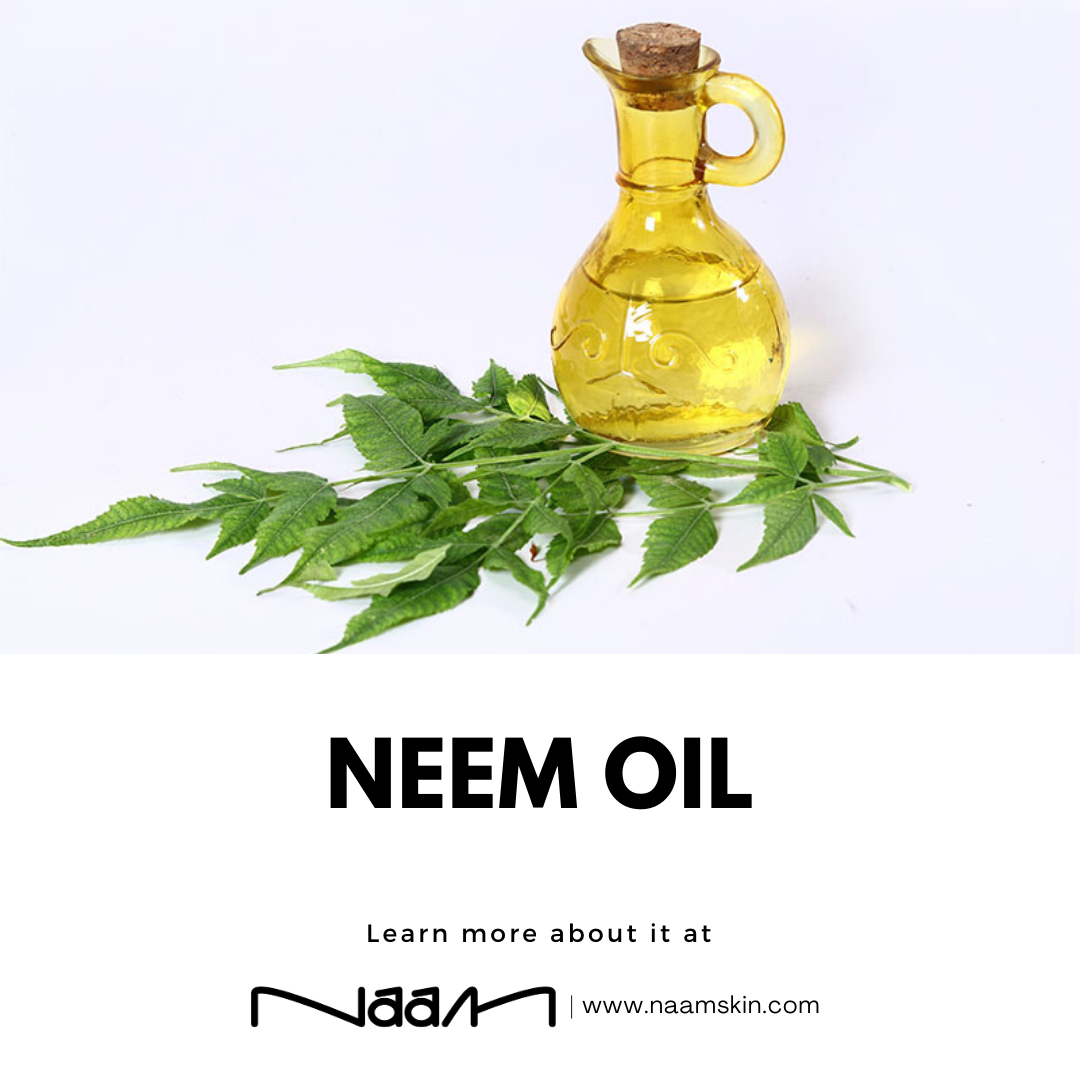Neem Oil
Derives from the fruits and seeds of the neem tree. These trees grow mainly in the Indian subcontinent.
Neem oil is rich in fatty acids, such as palmitic, linoleic, and oleic acids, which help support healthy skin. The oil is, therefore, a popular ingredient in skin care products.
The leaf of the plant also provides health benefits. The leaves contain plant compounds called flavonoids and polyphenols, which have antioxidant, anti-inflammatory, and antibacterial properties.
Benefits for the skin
Researchers have only recently begun to examine how plant compounds influence health and disease. As a result, few scientific studies have investigated the use of neem oil in general skincare or as a treatment for skin conditions.
Authors of a 2013 review of the available research into medicinal uses of neem concluded that its extracts can help treat a variety of skin conditions, including:
- acne
- psoriasis
- eczema
- ringworm
- warts
The following are some benefits of neem oil and the evidence behind these claims.
First, however, it is important to note that most of the studies involved cell lines or animals. Those that did involve humans only included small numbers of participants. This makes it difficult to draw conclusions about the effectiveness of neem in the general population.
Anti-aging Effects
A 2017 study investigated the anti-aging effects of topical neem leaf extract in hairless mice. The researchers first exposed the mice to skin-damaging ultraviolet B radiation. They then applied neem oil to the skin of some of the rodents.
The team concluded that the oil was effective in treating the following symptoms of skin aging:
- wrinkles
- skin thickening
- skin redness
- water loss
The researchers also found that the extract boosted levels of a collagen-producing enzyme called procollagen and a protein called elastin.
Collagen gives the skin structure, making it look plump and full, while elastin helps retain the skin’s shape.
Production of these compounds decreases as people age. This eventually leads to dry, deflated-looking, thin skin and the formation of wrinkles.
Promoting Wound Healing
Research suggests that neem oil may help enhance wound healing.
In one 2010 animal study, researchers discovered that neem oil showed superior wound healing effects, compared with Vaseline. Specifically, the rats that received topical neem oil healed more quickly. They also developed stronger and more resilient tissue at the sites of their wounds.
A similar 2013 study compared the effects of saline and neem oil on wound healing in rats. Those that received neem oil healed faster and did not develop raised scars.
The researchers speculated that compounds in neem oil may promote blood vessel and connective tissue growth, thus enhancing wound healing.
A 2014 study investigated whether a gel containing neem oil and St. John’s wort could help reduce skin toxicity from radiation therapy. The study involved 28 human participants who were receiving radiation therapy for head and neck cancer.
All participants experienced some reduction in skin toxicity following treatment with the gel. However, it is important to note that this study did not include a placebo control.
Fighting Skin Infections
A 2019 study examined the antibacterial properties of cosmetic products containing neem compounds. The authors found that soaps containing extracts of neem leaf or neem bark prevented the growth of several strains of bacteria.

